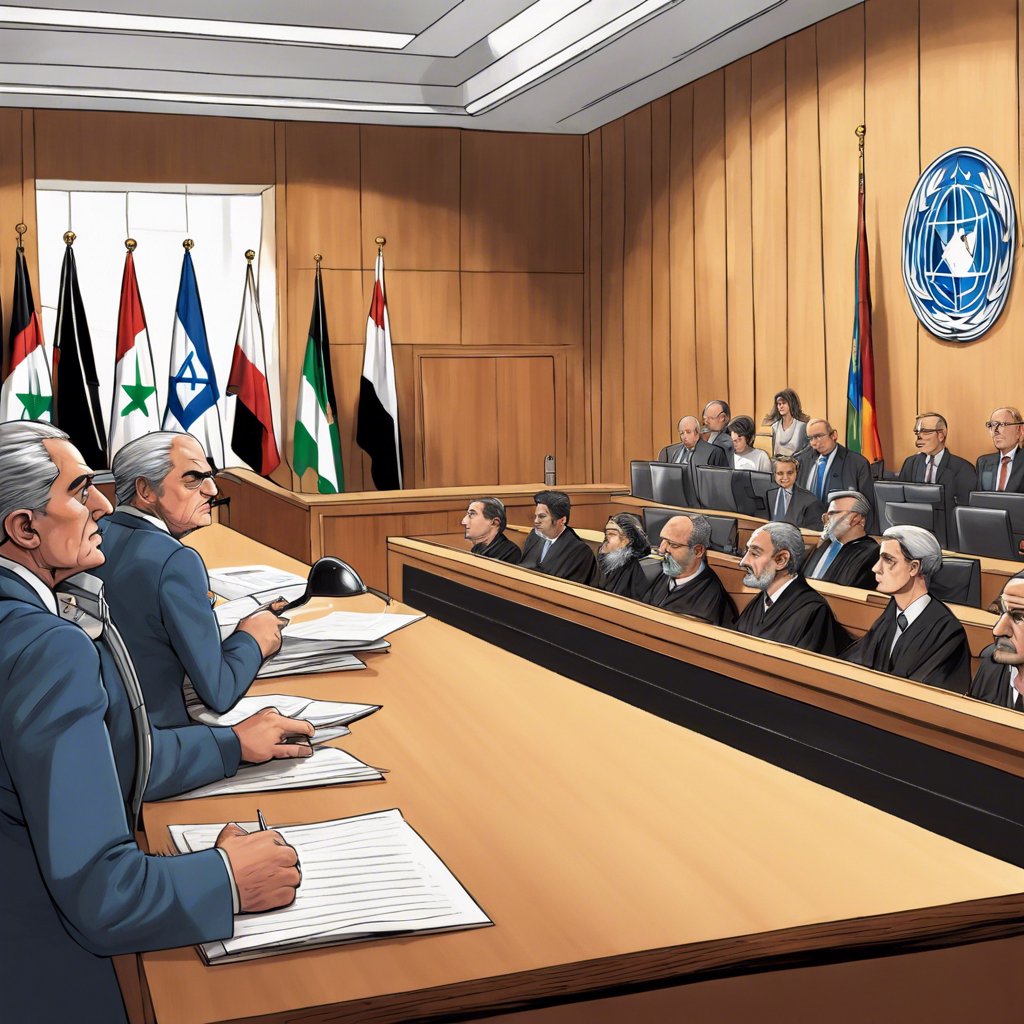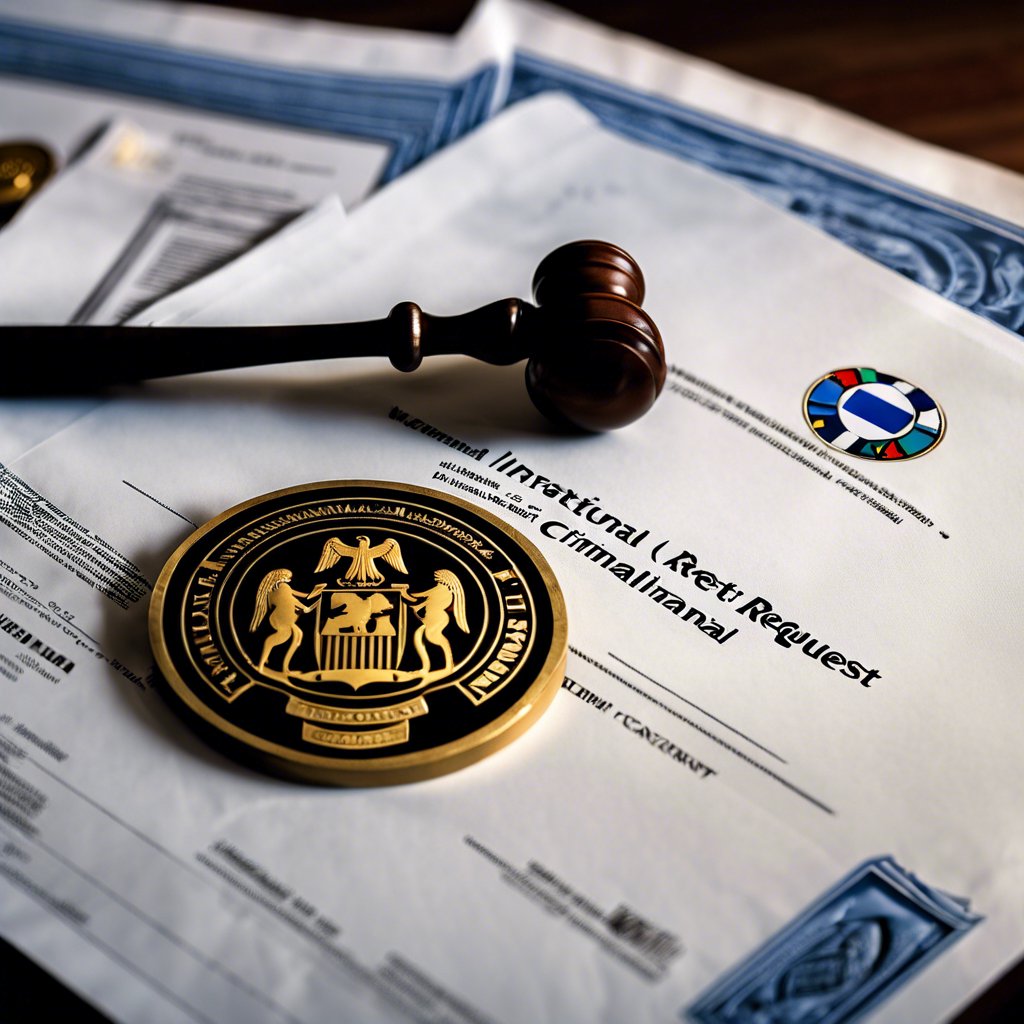International Criminal Court (ICC) and Arrest Warrants Against Israeli Officials
In their written submissions to the ICC’s preliminary examination chamber, which is considering the request for an arrest warrant against Israeli Prime Minister Benjamin Netanyahu and Defense Minister Yoav Gallant, Spain, Ireland, Colombia, Brazil, Palestine, South Africa, Bangladesh, Bolivia, Comoros and Djibouti stated that the Court has jurisdiction over Israeli officials who commit crimes in the Palestinian Territory in accordance with the Rome Statute.
In a joint written statement, South Africa, Bangladesh, Bolivia, Comoros and Djibouti stated that the Court has the authority to issue arrest warrants under Article 58 of the Rome Statute, the establishing treaty of the ICC. Colombia argued that the ICC has jurisdiction over acts committed in the Palestinian territory, including the occupied territories, while Brazil noted that the Oslo Accords did not in any way impede the ICC’s jurisdiction over the situation in Palestine.
19 UN Rapporteurs and Experts Support Trial
In a joint statement to the ICC, 19 UN rapporteurs and experts stated that the ICC has jurisdiction over Israeli officials and that an investigation could be launched against Netanyahu and Gallant. In the joint statement, they called for “no further delay in ensuring justice in the occupied Palestinian territories.”
USA, Germany, Czech Republic and Hungary Defend Israel’s Theses
The United States, which is not a party to the ICC, and Germany, the Czech Republic and Hungary, which are members of the ICC, defended Israel’s arguments in their statements to the Court. The United States, which argued that Israel had exclusive jurisdiction over acts committed by Israeli citizens under the Oslo Accords, stated that the ICC should leave investigations into Israeli officials to that country’s local institutions. The Czech Republic and Hungary argued that the Oslo Accords restricted Palestine’s, and therefore the ICC’s, jurisdiction over Israeli officials, while Germany argued that the ICC should give Israel time to investigate its own crimes involving its own citizens.
NGOs and Lawyers Advocate Both Views
Jewish organizations based in London, New York and Ottawa claimed that the ICC had no jurisdiction over Israeli officials, while pro-Palestinian non-governmental organizations (NGOs) and the Arab League argued that Israeli officials could be tried at the ICC. In its decision dated July 23, the ICC accepted requests from 64 individuals, organizations and countries, authorizing them to “make a statement” regarding whether it had jurisdiction over Israeli officials. The deadline for submitting a statement to the ICC expired today.
UK’s initiative was criticized
The UK had requested a written statement on 10 June 2024 to submit observations on “whether the ICC can exercise jurisdiction over Israeli citizens in circumstances where Palestine is unable to exercise criminal jurisdiction over Israeli citizens under the Oslo Accords”. In its decision on 27 June 2024, the ICC Preliminary Review Chamber accepted the UK’s request and instructed it to submit written observations by 12 July 2024. The ICC had stated that requests from the UK and those requesting permission to submit observations to the ICC must be submitted by 12 July 2024.
There was criticism that the UK’s attempt to submit an opinion would slow down the already slow-moving ICC investigation into Palestine, and it was suggested that the UK could oppose the arrest warrant for Netanyahu and Gallant. The then Prime Minister Rishi Sunak, who submitted the request to the ICC on behalf of the UK, said that the ICC Prosecutor’s Office applying for an “arrest warrant” would not help the situation in Gaza and opposed it. It was reported in the press that the government of Prime Minister Keir Starmer, who took office in the UK on July 6, did not intend to oppose the arrest warrant for Netanyahu and Gallant, unlike the Sunak government, and would not make a statement.
Procedure for Submitting a Statement to the ICC
Under Article 103 of the ICC Rules of Procedure, a state, organization or individual may be allowed to submit an opinion to the ICC, either verbally or in writing, at any stage of the proceedings, if deemed necessary for the proper determination of the case . This procedure, which is expressed in Latin as “Amicus Curiae” (friend of the court), refers to the submission of informative statements on the subject before a case is decided. This non-binding advisory form of submission is used by many countries and organizations in order to influence the decision of the Court. The Prosecutor’s Office has the right to respond to Amicus Curiae submissions submitted to the ICC. The ICC has previously allowed Amicus Curiae submissions under Article 103 of the ICC Rules of Procedure, regarding the case of former Sudanese President Omar al-Bashir and its jurisdiction in the Palestinian Territories.


















